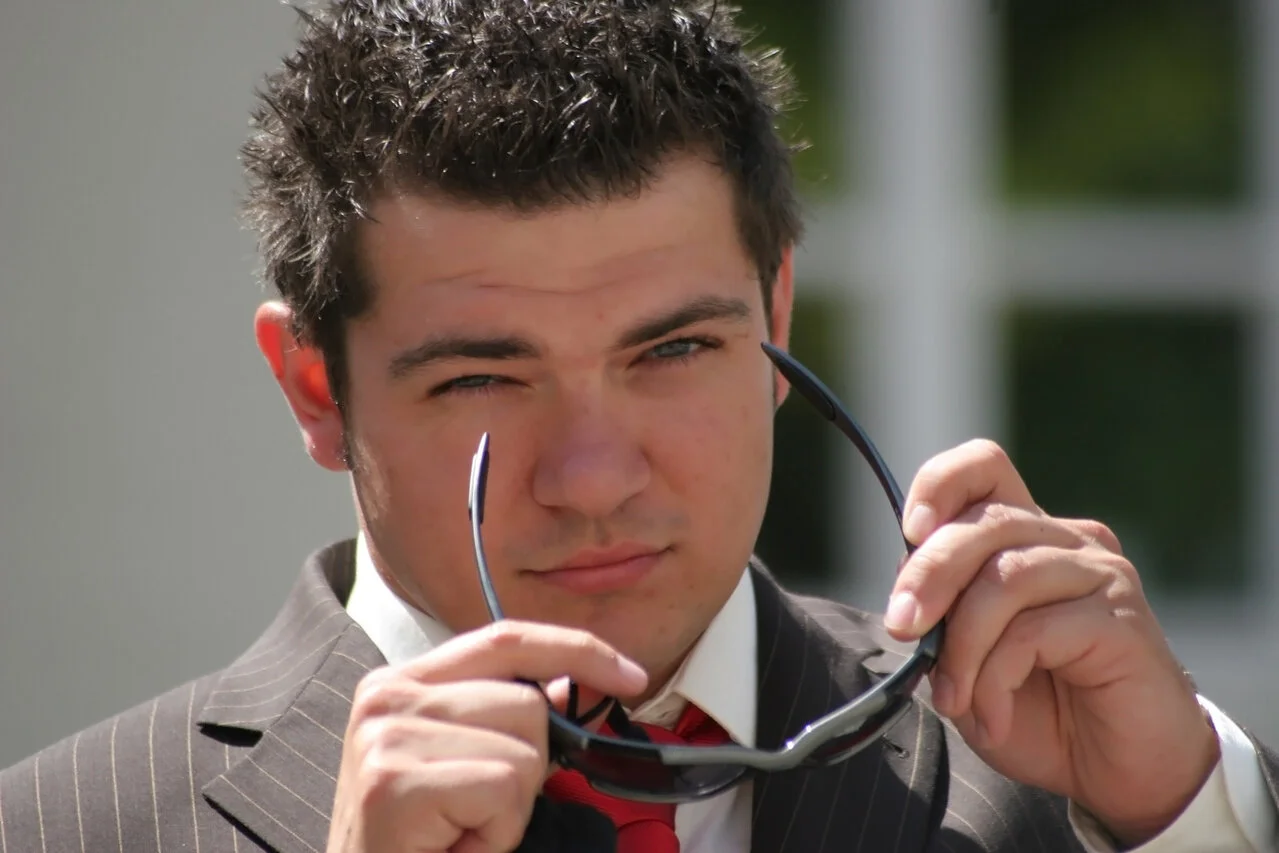Out of Arrogance
Excerpt: 302010-05
We support the contention that we, as Americans, are arrogant and lazy with our language. This is a very generalized statement but applicable to many cultural aspects and domains within our culture. We didn’t define this condition and state it ourselves, but we agree with the authors who frequently mentioned it to us—see our blog “In Search of Mediocrity.”
Example of a “Do You Think I Care” stare…
If you want examples of this contention, listen closely to people around you: friends, family, fellow workers/colleagues, television sitcoms, retailers, service staff, etc. It matters not who, where, or when you observe, but pick someone or groups; look to understand the conversation context, then start listening.
Two Important Definitions
To help you, here is a definition of arrogance, by way of dictionary.com, which states “an offensive display of self-importance: overbearing pride”. Sound familiar? How does the word lazy affect you, which states “averse or disinclined to work, activity or exertion”? Couple these, then you will begin to perceive patterns. Once you have practiced observing others, gained understanding and identification with the contention, look at your language, then ask, “What is happening in my language?”.
Become Aware
Our goal is to help you become aware of yourself so you can move away from arrogance and prideful words and begin to use more humble and grateful words while lifting your language. Look closely at your attitude, style, and approach to see their role in your language. Each of these mentioned components exists inside your beliefs and, consequently, your language usage. You’ll hear more about this in future blogs!!!
From our observations, language elevation would suit individuals and business people of all ages! We suggest dropping business domain language terminology, whether technology, medicine, psychology, engineering, etc. Also, drop faddish, crude, slang, and hip culture; quick talk brings little to understanding. My wife and I are still surprised by the language of junior and high schoolers as we walk by them in the morning: our culture seems to find this acceptable.
Word Power
We’re introducing the “Power of Words” for you here: words have an impact to do great good or harm. The good can lift and support people, as the harm can stop and shut people off or down. There, too, is an associated spiraling up or down effect. Each effect can suck all language into a positive or negative vortex. We like positive to reverse the negative tendency, to make you clearer, elevate the language, and use more precision. Your vocabulary will rise in language waters.
Think Higher Order
When speaking, imagine you are addressing an audience of the highest order. Act as if your audience contains customers, prospects, clergy and nuns, business leaders, or any group, and be thoughtful, respectful, and intelligent. If you have not heard “Act Accordingly,” then arm yourself with the concept and begin by thinking about the importance of what you say defines who you are being and who you are. It is not a novel concept, but one to remember consistently.
Your words matter in many ways to which you may not yet be accustomed. You may be struck by the idea that we ask you to be thoughtful but leave your spontaneity behind. Not so. We want you to trust your instincts yet become more prudent in your choices of words. How would you do this?
Mindful Public Speaking
You may begin by thinking about public speaking. It may not be your greatest asset but your greatest fear. Putting yourself in this mindset might bring a few things to your attention. We identified fear, and you might be feeling some anxiety about this with your beliefs about public speaking. However, we think this is a good place to begin for you. It allows you to think about your beliefs. Yes, we will bring you back to the originating experiences that led you to your beliefs in the first place. We have much more to offer you in our webinars and workshops. But let’s get back to some basics.
Get Feedback
First, you are probably unfamiliar with your language, what you say, or how you say things. You may understand the impact of what you say by way of the reactions that you receive from those to whom you are speaking. If you have little sense of this, though, begin to notice by looking and listening for things present in your audience: interest, understanding, glazed looks, acceptance, dozing, anger, etc. If you are willing to look, many things will appear for you. Within this context, begin changing your words. Start by asking questions of your audience: “Does this make sense?”, “Do you agree with what has been said?” to keep in close touch with your listeners. There is more, but this will help you get going for now.
We suggest you record a few of your conversations (i.e., please do this legally) and playback your side of the conversation to realize your part in it. Ask people in your listening circle to give feedback on your language, style, attitude, etc. What could and needs to change to become more effective? To be understood better? What other things can you think of on your own?
Conclusion
We want you to strive for excellence in all you do, especially your language, since this is where we all live. Become selective in your word choice, improve your language, and lift yourself out of arrogance.
By the way, we all are arrogant and lazy in our language.
